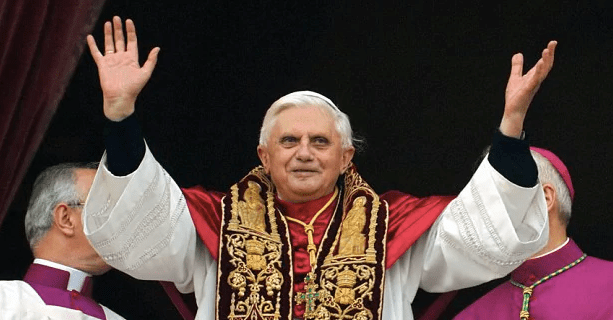“My God, my God, why have you forsaken me?”
– Matthew 27:46
It was a crushing cry. These nine words were emitted between choking gasps from a bruised and bleeding God-made-man nailed to an executioner’s tree. From those weeping over or taunting him, there was confusion. Whether it was in Hebrew or Aramaic, Eloi, Eloi, lama sabachthani? was misinterpreted by some as Christ calling upon Elijah. With dark glee, as if wagering over a carnival game, some observed, “Wait, let us see if Elijah comes to save him.” (Matthew 27:49) But then there were others present who understood the translation of his words. They were the words King David wrote in Psalm 22. They knew the words from their upbringing in the synagogue. But at this very moment, they didn’t understand what they signified.
For years, I thought these words represented the blackest depths that Christ reached before death. It was a moment of God despairing of God. It was the Faithful One arriving at the desperate point of faithlessness. Perhaps the hell on earth that savaged Jesus led the suffering human in Jesus to momentarily eclipse the Eternal God. Even my hero, G.K. Chesterton, may not have completely understood what was happening when he wrote,
In this indeed I approach a matter more dark and awful than it is easy to discuss; and I apologise in advance if any of my phrases fall wrong or seem irreverent touching a matter which the greatest saints and thinkers have justly feared to approach. But in that terrific tale of the Passion there is a distinct emotional suggestion that the author of all things (in some unthinkable way) went not only through agony, but through doubt …When the world shook and the sun was wiped out of heaven, it was not at the crucifixion, but at the cry from the cross: the cry which confessed that God was forsaken of God. And now let the revolutionists choose a creed from all the creeds and a god from all the gods of the world, carefully weighing all the gods of inevitable recurrence and of unalterable power. They will not find another god who has himself been in revolt. Nay (the matter grows too difficult for human speech), but let the atheists themselves choose a god. They will find only one divinity who ever uttered their isolation; only one religion in which God seemed for an instant to be an atheist.
But then I read Pope Benedict XVI’s Jesus of Nazareth: Holy Week (from the entrance into Jerusalem to the Resurrection). Pope Benedict XVI reminds us that Jesus is the “new David.” And in reciting the Psalms, Jesus is taking full ownership of words spoken by the great Old Testament King which were truly and timelessly Christ’s words. Benedict would write,
In the Passion — on the Mount of Olives and on the Cross — Jesus uses passages from the Psalms to speak of himself and to address the Father. Yet these quotations have become fully personal; they have become the intimate words of Jesus himself in his agony. It is he who truly prays these Psalms; he is their real subject. Jesus’ utterly personal prayer and his praying in the words of faithful, suffering Israel are here seamlessly united. (p. 153)
In uttering the opening words of Psalm 22, Christ is owning the horrors of his Passion as originally articulated by King David. But here is the brilliance I missed.
The great “Passion Psalm” (Psalm 22), which begins with the words: “My God, my God, why have you forsaken me?”, ends with a promise that anticipates the granting of the prayer: “From you comes my praise in the great congregation; my vows I will pay before those who fear him. The afflicted shall eat and be satisfied; those who seek him shall praise the Lord.” (Psalm 22: 25-26) In truth, these words are fulfilled now: “the afflicted shall eat”. What they receive is more than earthly food; they receive the true manna: communion with God in the risen Christ. (p. 140-141)To be sure, the Psalms are deeply personal prayers, formed while wrestling with God, yet at the same time they are uttered in union with all who suffer unjustly, with the whole of Israel, indeed with the whole of struggling humanity, and so these Psalms always span past, present, and future. They are prayed in the presence of suffering, and yet they already contain within themselves the gift of an answer to prayer, the gift of transformation. (p. 215)
In his agonizing cry, Jesus is not despairing of God. He is enduring the crushing weight of the world’s blackest sin. He is the unblemished Paschal Lamb standing in for us to receive the justice we deserve (which he doesn’t). Christ owns the horrors of his Passion by reciting Psalm 22, but he simultaneously points a hopeful finger toward the inevitable end of the same Psalm. He endures Justice (the beginning of Psalm 22) while he dispenses Grace (the end of Psalm 22). His act clears our debt and grants us Eternal Life. He is transformed through death and resurrection. And, in Him, we are transformed as well.
So do not forget, Psalm 22 begins,
My God, my God, why have you forsaken me?
and ends,
The generation to come will be told of the Lord, that they may proclaim to a people yet unborn, the deliverance you have brought.
Good Friday anticipates Easter. And so did Jesus.
Suffering ends in Glory.
Death is swallowed by Resurrection.
Justice gives way to Mercy.
How glorious. And brilliant.
May we proclaim to a people yet unborn the deliverance God has brought.

